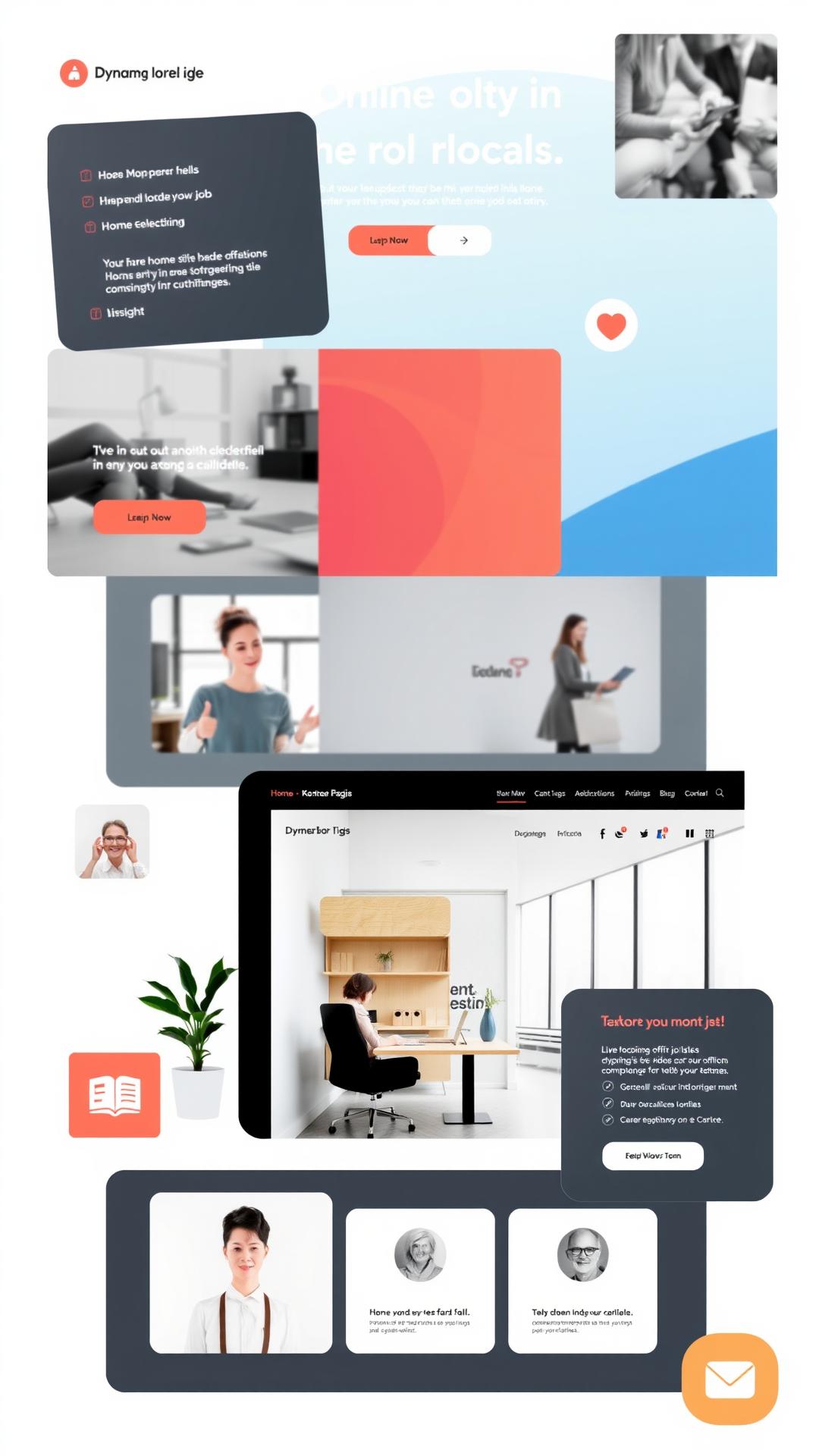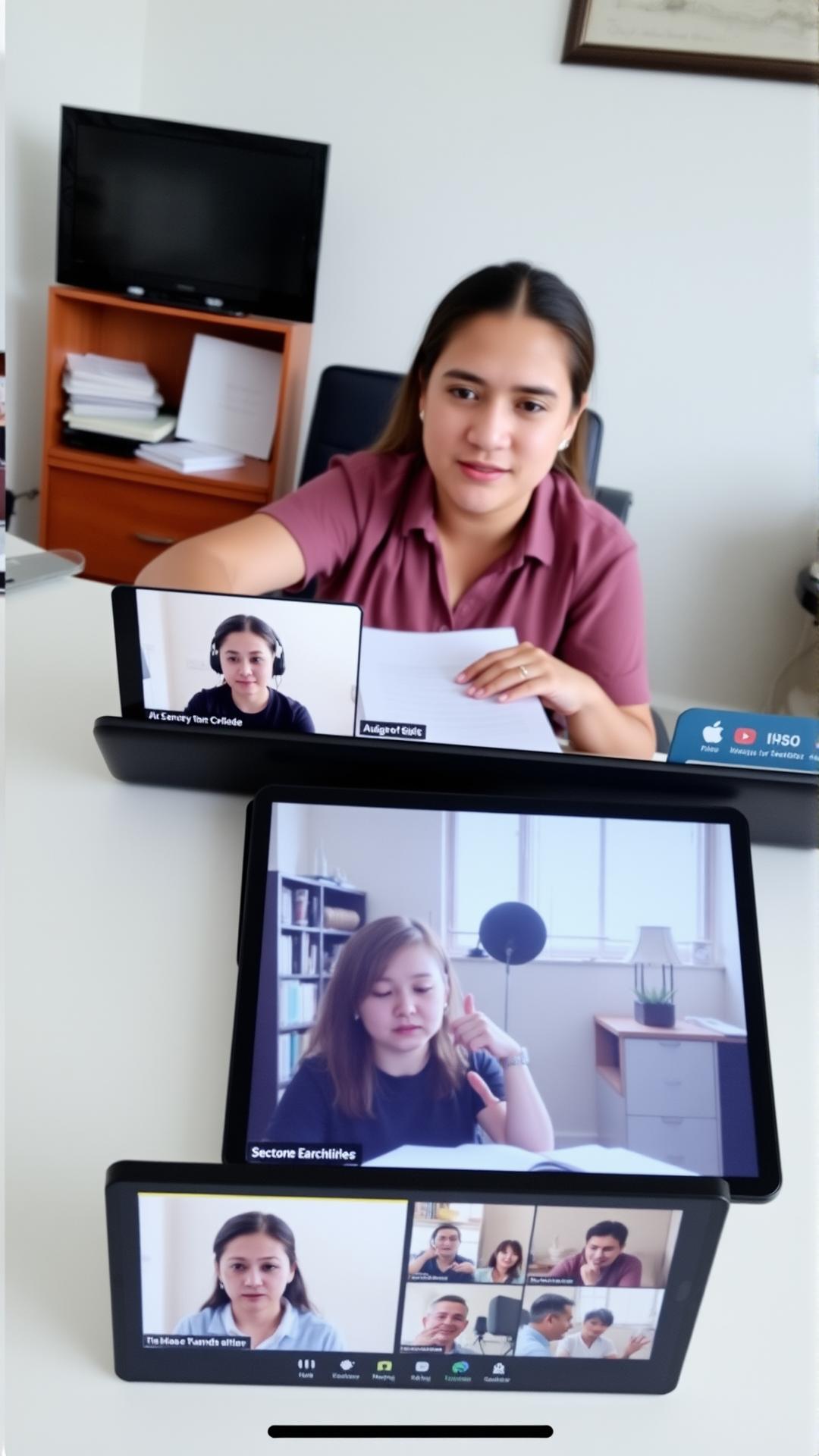Introduction
In this article, we will explore various strategies for securing rewarding jobs from home. We will delve into the advantages of remote work, the significant role of online platforms in job searching, and essential skills that today’s remote workforce should possess. Whether you are a seasoned professional looking to transition to remote work or a newcomer seeking your first job, this guide aims to equip you with the knowledge and resources necessary to thrive in the evolving world of employment.
Understanding Remote Work Definition and Evolution in the Digital Era
Remote work, at its core, refers to a professional arrangement where employees can complete their tasks from locations outside the traditional office environment, often from the comfort of their homes. This concept, while widely accepted today, has evolved significantly over the last few decades. The rise of technology in the late 20th century laid the groundwork for a shift in how businesses operate, allowing for communication and collaboration without the physical presence of employees in a centralized office.
The Role of Technology in Remote Employment
Understanding Digital Tools and Their Impact
The transformation of the workplace in the digital age has been significantly influenced by advanced technology, influencing how we approach employment opportunities from home. Digital tools such as cloud storage, video conferencing software, and project management applications have fundamentally changed how teams collaborate and operate effectively, regardless of physical location.
Online Platforms Supporting Remote Work
The growth of remote work has also been propelled by various online job platforms that cater specifically to freelancers and remote employees. Websites like Upwork, FlexJobs, and Remote.co offer curated job listings tailored for individuals looking for home-based opportunities. These platforms enable job seekers to explore a wide array of fields, from tech and design to writing and customer service. The specialized nature of these platforms helps users find positions that align with their skills and career aspirations.
Finding Remote Job Opportunities
Where to Look for Jobs from Home
In the quest to find remote work, the right resources can make all the difference. Digital platforms have proliferated, providing a wide array of places to seek employment from home. Online job boards are among the primary avenues for discovering remote positions. Websites such as Indeed, Glassdoor, and FlexJobs have dedicated sections for remote opportunities. These platforms allow job seekers to filter results by job type, including full-time, part-time, or freelance roles, making it easier to find positions that fit individual schedules and preferences.
Company career pages also deserve attention when seeking remote opportunities. Many organizations have embraced flexible work arrangements, yet they may not list their positions on third-party job boards. Instead, they showcase remote jobs exclusively on their websites. Setting up job alerts on these pages ensures that you’re updated about new openings as soon as they are posted. Researching companies known for their remote cultures can help focus your search on those more likely to accommodate telecommuting.
Social media channels, particularly Twitter and Facebook, can also be effective tools for job searching. Many companies post job listings on their social media pages, and following these brands can provide real-time updates. Joining relevant job search or niche community groups can also yield unexpected remote job opportunities.
Tailoring Your Resume and Application Best Practices for Remote Positions
In the quest for rewarding jobs from home, presenting a well-crafted resume and application can make a significant difference. Employers seeking remote candidates often prioritize specific skills and experiences that align with the nature of virtual work. To enhance your chances of securing a remote position, customizing your resume and cover letter to fit the job description is essential.
Understanding the Job Requirements
Begin by closely analyzing the job posting. Identify keywords and phrases that are frequently mentioned. Employers often utilize applicant tracking systems (ATS) that scan for these keywords. Incorporating them into your resume and cover letter not only demonstrates your suitability for the role but also helps avoid getting filtered out in preliminary screenings.
For example, if a position emphasizes the need for “strong communication skills” and “self-motivation,” ensure these attributes are highlighted through specific instances from your professional history. Rather than simply stating that you possess these skills, detail experiences where you successfully utilized them. This could be a project where you led a remote team or resolved conflicts effectively within a virtual work environment.
Crafting a Compelling Cover Letter
Your cover letter should act as a narrative that connects your experiences and skills to the role you are targeting. Start with a strong opening statement that captures the hiring manager’s attention and makes a compelling case for why you are an ideal candidate for the remote position.
Be sure to include the following elements in your cover letter:
- Personalization: Address the hiring manager by name whenever possible.
- Alignment: Clearly indicate how your skills and experiences align with the remote role.
- Enthusiasm: Express genuine interest in the position and the company, highlighting your eagerness to contribute remotely.
Keep your tone professional yet personable. Conveying your personality can help Hiring Managers gauge how well you might fit within their team culture, especially important in a remote work context.
Tailoring your resume and application is not just about altering keywords; it’s about demonstrating an understanding of remote work dynamics and illustrating that you are a self-starter capable of thriving in a virtual environment. Ensure that every element of your application reflects this understanding to maximize your chances of standing out in the competitive market of home-based jobs.
Acing the Remote Interview Strategies for Success
Preparing for Virtual Interviews
Securing a remote job hinges not only on your credentials but also on your performance during the interview. The first step is to prepare thoroughly. Research the company, the team, and the role you are applying for. Review their website, social media presence, and any recent news articles. This will not only help you understand the company’s mission and values but also enable you to craft relevant questions. Knowing specifics about the organization showcases your genuine interest and where you could potentially fit in.
Practice common interview questions, especially those tailored for remote positions. Questions such as, “How do you manage your time while working remotely?” or “Explain your process for collaborating with team members from different locations” are commonly asked. Use the STAR method (Situation, Task, Action, Result) for structuring your responses, allowing you to present compelling examples from your past experience.
Technical Setup for Success
Your technical setup plays a vital role in remote interviews. Ensure that your video and audio equipment is reliable. Conduct a trial run with a friend or family member to test your internet connection, camera, and microphone. Choose an environment that is well-lit, quiet, and free from distractions. A clutter-free background helps maintain professionalism, avoiding any potential distractions during the interview. Consider using a plain wall or a bookshelf as your backdrop to maintain focus on you.
Familiarize yourself with the video conferencing platform that will be used for the interview. Whether it’s Zoom, Microsoft Teams, or another service, knowing how to navigate the platform can alleviate technical hiccups. Make sure to log in a few minutes early, allowing you to address any last-minute issues calmly.
Body language matters even in a virtual setting. Sit up straight, maintain eye contact by looking at the camera, and engage actively with nods and affirmations. This conveys enthusiasm and attentiveness, contributing positively to the interviewer’s perception of you.
Follow up after the interview with a thank-you email, reiterating your interest and appreciation for the opportunity. This small gesture can leave a lasting impression, setting you apart from other candidates.
Establishing a Productive Home Office Strategies to Enhance Productivity and Focus
Creating a dedicated workspace in your home is pivotal for maximizing productivity and focus, especially for remote workers. A well-established home office can minimize distractions and foster an environment conducive to efficient work, leading to better outcomes in your professional life.
Designing Your Workspace
The first step in establishing an effective home office is selecting the right location. Choose a quiet area of your home, free from household noise and distractions. Ideally, this space should be separate from your living areas to help delineate work from personal time. Once you have identified the location, decide on the layout. A large desk is essential, as it provides ample space for your computer, necessary tools, and any documents you may need. Invest in an ergonomic chair to enhance comfort over long working hours, preventing fatigue and promoting better posture.
Lighting is another crucial factor. Natural light is ideal, so positioning your desk near a window can boost your mood and alertness. If natural light is limited, consider investing in quality task lighting that mimics daylight. The ambiance created by proper lighting can tremendously affect your motivation and energy levels.
Minimizing Distractions
Creating a productive workspace also involves minimizing potential distractions. Set boundaries with family members or roommates by communicating your work hours clearly. Establish routines that signal when you are available for social interaction and when you need to focus. Outside of personal distractions, digital interruptions can be equally detrimental. Organize your digital workspace by tidying up your desktop and disabling non-essential notifications during work hours to maintain your concentration.
A few strategic touches can add to your workspace’s overall effectiveness. Personalizing your office with motivational quotes or plants can create a more welcoming atmosphere. However, keep decorations minimal to avoid clutter that may divert your attention. Furthermore, ensuring that your technology is up-to-date and functional is essential. A reliable internet connection and the necessary software tools will enable smooth communication and task execution, enhancing your overall productivity.
The creation of a dedicated home office is more than just setting up a desk; it is about cultivating an environment that enhances your focus and efficiency. With the right strategies in place, you can transform your workspace into a productivity powerhouse that supports your remote work journey.
Continuous Learning and Skill Development Strategies for Remote Professionals
Adapting to Change in the Remote Work Environment
In the fast-paced, digital work environment, continuous learning and skill development are no longer optional; they have become essential for anyone aiming to secure rewarding jobs from home. The landscape of remote work is ever-changing, influenced by advancements in technology and shifting employer expectations. To stay competitive and valuable, remote professionals must proactively enhance their skills and adapt to new trends.
One effective strategy is to identify the skills that are in high demand within your industry. This can often be discerned from job postings that outline preferred qualifications. Commonly sought-after skills in the remote workforce include proficiency in digital communication tools, project management software, and coding languages. Additionally, soft skills such as adaptability, emotional intelligence, and collaboration are increasingly being prioritized by employers. By focusing your learning efforts on developing these competencies, you can better position yourself for advancement and new opportunities.
Effective Learning Platforms and Resources
Numerous platforms offer courses that cater to various skill levels and interests, making it easier for remote professionals to engage in lifelong learning. Websites like Coursera, Udemy, and LinkedIn Learning provide access to a vast collection of courses, often led by industry experts. Enrolling in these courses can not only expand your knowledge but also enhance your resume, showcasing your commitment to professional growth.
Networking and participating in online communities can also facilitate skill development. By engaging with peers in your field, you can gain insights into what skills are currently valued and share resources that might accelerate your learning process. Joining forums, attending webinars, or participating in virtual conferences can help you stay informed about industry trends while allowing you to learn from others’ experiences.
Setting specific learning goals can lead to a more structured developmental experience. Consider creating a skill development plan that outlines what skills you wish to acquire or enhance over a specified timeframe. This actionable approach not only keeps you accountable but also provides a clear path toward improvement.
Embracing a mindset of continuous learning and actively cultivating new skills will not only boost your confidence but will also enhance your desirability as a remote worker. As home-based jobs continue to diversify and expand, your commitment to ongoing education will be a key factor in ensuring long-term career success.
Conclusions
The landscape of remote work offers numerous advantages for employees seeking flexibility and autonomy. As we have explored, the rise of technology-driven platforms has transformed how job seekers connect with potential employers, making it essential for candidates to adapt their skills and approaches accordingly. By understanding the nuances of remote work and leveraging online job boards, individuals can identify fulfilling positions that align with their professional goals and personal lifestyles.
Securing a rewarding job from home requires persistence, adaptability, and strategic planning. Those willing to invest in their professional development and make use of the wealth of resources available online will find themselves well-positioned to succeed in the ever-expanding realm of remote employment. As opportunities continue to grow, so too does the potential for a satisfying career that allows for balance and fulfillment in one’s personal life.



















